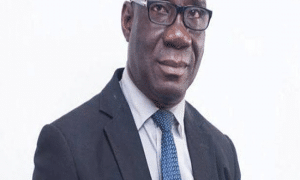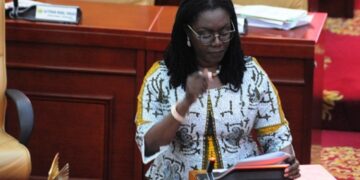President Nana Addo Dankwa Akufo-Addo has launched Phase Two of the government’s main agriculture plan, “Planting for Food and Jobs,” on Monday, August 28, 2023, at the University for Development Studies in Tamale.
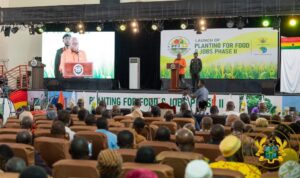
The second phase of the initiative, aimed at building on the success of the first, is a five-year master plan for the transformation of agriculture in Ghana, with a focus on modernization through the development of a selected commodity value chain and active private sector participation.
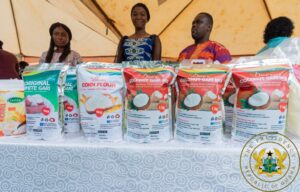
President Akufo-Addo stated at the launch that the second phase “takes a holistic view and places greater emphasis on value chain approaches by focusing on strengthening linkages between actors along eleven selected agricultural commodity value chains broadly classified into grains, roots and tubers, vegetables, and poultry.”

Additionally, the Phase Two of the Programme aims to improve service delivery in order to maximise impact, and that it replaces direct input subsidies with smart agricultural financial support in the form of comprehensive input credit, with provision for in-kind payment.
The President also revealed that key elements of the new phase include an input credit system that gives farmers access to inputs such as seeds, fertilisers, and pesticides, as well as other support services for improving productivity and yield, as well as storage infrastructure and a logistic hub to improve produce storage and distribution and reduce post-harvest losses.
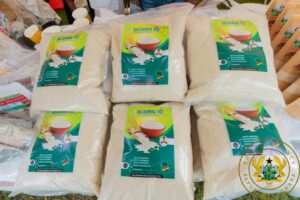
It also incorporates off-taker arrangements/commodity trading to promote farmer access to markets and ensure fair crop pricing; and a digital platform for management, monitoring, and coordination to improve the program’s efficiency and efficacy.
The Program’s impact is expected to be in the area of job creation, with approximately one-point-two million (1.2 million) farmers enrolled in the first year.” Over the next four (4) years, the Programme is expected to create an average of 210,000 new farm-related jobs every year. This excludes other jobs in the agricultural value chains, which are anticipated to be four hundred and twenty thousand on an annual basis over the same period,” President Akufo-Addo added.
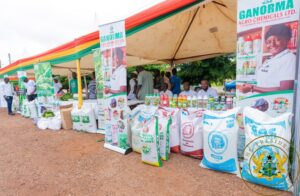
President Akufo-Addo on April 19, 2017, officially launched the “Planting for Food and Jobs” initiative at Goaso in the Ahafo region. This programme served as the government’s flagship effort to modernise agriculture, increase production efficiency, achieve food security, and increase farmer profitability. In short, it sought to significantly raise increase farmer profitability. In short, it sought to significantly raise agricultural output and followed a value-adding approach with the goal of quickly ramping up agro-processing and creating new, reliable markets.
The President noted that due to the first phase’s successful implementation, more than 2.7 million farmers and other value chain participants have been reached through the five modules, there is a generally stable environment for food security with food self-sufficiency in key food staples like maize, cassava, and yam, and the agricultural sector’s growth rate has increased from 2.7% in 2016 to an average of 6.3% from 2017 to 2021.

He continued that, as a result of this, “Government has, thus, been able to achieve the annual target of six percent (6%) of sector growth, set under the Malabo Declaration to which Ghana is a signatory, increased fertilizer application rate from eight kilogrammes per hectare (8 kg/ha) in 2016 to twenty-five kilogrammes per hectare (25 kg/ha) in 2022, an increased distribution of certified seeds from two thousand metric tons (2,000 MT) in 2016 to thirty-six thousand metric tons (36,000 MT) in 2022 and an increased private sector investment in the seed industry.”

The President was pleased to announce that “a recent Summit, organised by the United Nations on the need to build country food systems in September 2021 in New York and at the AU Dakar II Summit in January 2022, underscored the need for the review of strategies for delivering solutions to challenges in the agricultural sector,” and that “it is praise-worthy that Ghana has responded to the call to action at both Summits by rolling out the Second Phase of the PFJ Programme.”

“I reiterate my commitment to providing farmers, food crop farmers, fish farmers, and livestock farmers with the support and respect they deserve from my government.” “We need to elevate agriculture to a higher level in order to improve the quality of life for our people,” he pledged.



